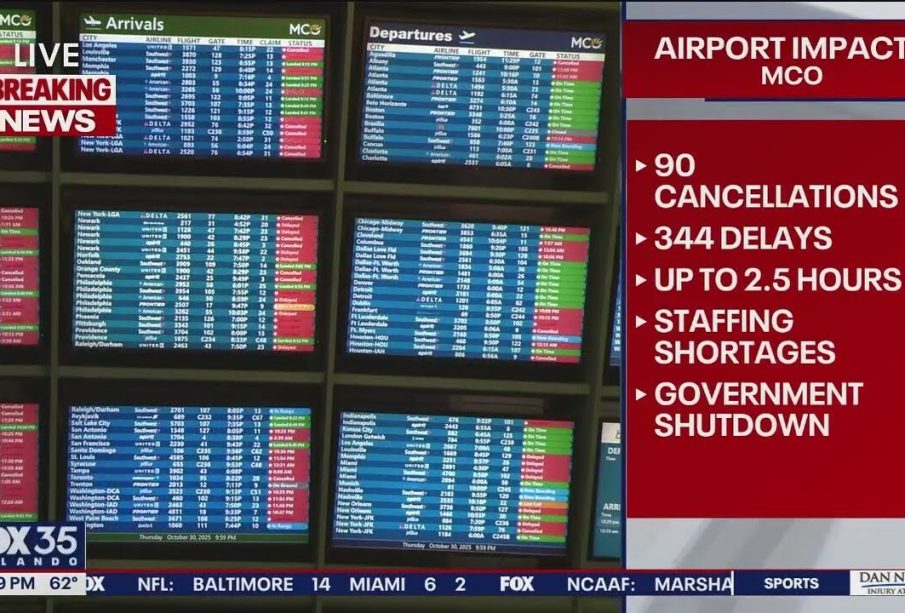Orlando Airport Shutdown: What You Need to Know

Introduction
The recent unexpected shutdown of Orlando International Airport (MCO) has caused chaos in the travel plans of many passengers. As a major hub in the United States, the airport plays a vital role in both domestic and international travel. News of the shutdown has raised concerns not only for those currently travelling but also for the broader travel industry during one of its peak seasons.
Details of the Shutdown
On the afternoon of October 15, 2023, Orlando Airport was forced to halt operations due to a reported technical failure in its air traffic control systems. According to the Federal Aviation Administration (FAA), the glitch prompted a complete grounding of flights, leading to hundreds of cancellations and delays.
Officials from the airport confirmed that emergency teams were deployed to manage the situation and rectify the issue. While they worked swiftly to restore normal operations, the backlog of flights created significant wait times for passengers. Many travelers expressed their frustrations on social media, sharing experiences of long waits and unexpected overnight stays.
Impact on Passengers and Airlines
The ripple effects of the Orlando airport shutdown have been felt widely. Airlines such as Southwest, Delta, and American Airlines reported significant disruptions. Many airlines offered waivers for affected customers, allowing them to change their flight dates without incurring fees, but this did not alleviate the immediate stress faced by numerous passengers.
Local hotels near the airport saw a surge in bookings as stranded passengers sought accommodations, leading to increased demand and higher prices. The airport’s shutdown also raised concerns among families travelling for the upcoming holiday season, as it highlighted the vulnerabilities within airport operations.
Conclusion
By late evening on October 15, the Federal Aviation Administration announced that operations at Orlando International Airport were slowly returning to normal. However, the disruptions serve as a reminder of the importance of technical reliability in air travel and the potential widespread impact of any operational hiccup.
As travel continues to rebound post-pandemic, both airports and airlines will need to invest in systems that ensure reliability to avoid such incidents in the future. Passengers are advised to stay updated on their flight status and to consider travel insurance to mitigate the impact of potential disruptions.









